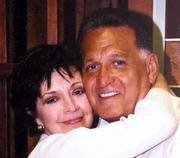Actuary "Ezekial 25:17 - The path of the righteous man is beset on all sides by the inequites of the selfish and the tyranny of evil men. Blessed is he that shepherds the weak from the valley of darkness for he is truly his brother's keeper, and the finder of lost children. And I will strike down upon thee with great vengeance and furious anger those who attempt to poison and destroy my brothers, and you will know my name is the Lord when I lay my vengeance upon thee."
910 Knowingly and Willfully
The prohibition of 18 U.S.C. § 1001 requires that the false statement, concealment or cover up be "knowingly and willfully" done, which means that "The statement must have been made with an intent to deceive, a design to induce belief in the falsity or to mislead, but § 1001 does not require an intent to defraud -- that is, the intent to deprive someone of something by means of deceit." United States v. Lichenstein, 610 F.2d 1272, 1276-77 (5th Cir.), cert. denied, 447 U.S. 907 (1980). The government may prove that a false statement was made "knowingly and willfully" by offering evidence that defendants acted deliberately and with knowledge that the representation was false. See United States v. Hopkins, 916 F.2d 207, 214 (5th Cir. 1990). The jury may conclude from a plan of elaborate lies and half-truths that defendants deliberately conveyed information they knew to be false to the government. Id. at 214-15.
As used in the statute, the term "knowingly" requires only that the defendant acted with knowledge of the falsity. See United States v. Lange, 528 F.2d 1280, 1287-89 (5th Cir. 1976). As in other situations, to commit an act "knowingly" is to do so with knowledge or awareness of the facts or situation, and not because of mistake, accident or some other innocent reason. See Fifth Circuit Pattern Jury Instructions, § 1.35 (1990). Knowledge of the criminal statute governing the conduct is not required.
The false statement need not be made with an intent to defraud if there is an intent to mislead or to induce belief in its falsity. Reckless disregard of whether a statement is true, or a conscious effort to avoid learning the truth, can be construed as acting "knowingly." United States v. Evans, 559 F.2d 244, 246 (5th Cir. 1977), cert. denied, 434 U.S. 1015 (1978).
A defendant is not relieved of the consequences of a material misrepresentation by lack of knowledge when the means of ascertaining truthfulness are available. In appropriate circumstances, the government may establish the defendant's knowledge of falsity by proving that the defendant either knew the statement was false or acted with a conscious purpose to avoid learning the truth. See United States v. West, 666 F.2d 16, 19 (2d Cir. 1981); Lange, 528 F.2d at 1288; United States v. Clearfield, 358 F. Supp. 564, 574 (E.D. Pa. 1973). Proof that the defendant acted with reckless disregard or reckless indifference may therefore satisfy the knowledge requirement, when the defendant makes a false material statement and consciously avoids learning the facts or intends to deceive the government. See United States v. Schaffer, 600 F.2d 1120, 1122 (5th Cir. 1979).
The term "willfully" means no more than that the forbidden act was done deliberately and with knowledge, and does not require proof of evil intent. McClanahan v. United States, 230 F.2d 919, 924 (5th Cir. 1955), cert. denied, 352 U.S. 824 (1956); McBride v. United States, 225 F.2d 249, 255 (5th Cir. 1955), cert. denied, 350 U.S. 934 (1956). An act is done "willfully" if done voluntarily and intentionally and with the specific intent to do something the law forbids. There is no requirement that the government show evil intent on the part of a defendant in order to prove that the act was done "willfully." See generally United States v. Gregg, 612 F.2d 43, 50-51 (2d Cir. 1979); American Surety Company v. Sullivan, 7 F.2d 605, 606 (2d Cir. 1925)(Hand, J.); United States v. Peltz, 433 F.2d 48, 54-55 (2d Cir. 1970),cert. denied, 401 U.S. 955 (1971) (involving 15 U.S.C. § 32(a). See also 1 E. Devitt, C. Blackmar, M. Wolff & K. O'Malley, Federal Jury Practice and Instructions, § 17.05 (1992).
October 1997 Criminal Resource Manual 910
Tuesday, February 13, 2007
Subscribe to:
Post Comments (Atom)


No comments:
Post a Comment